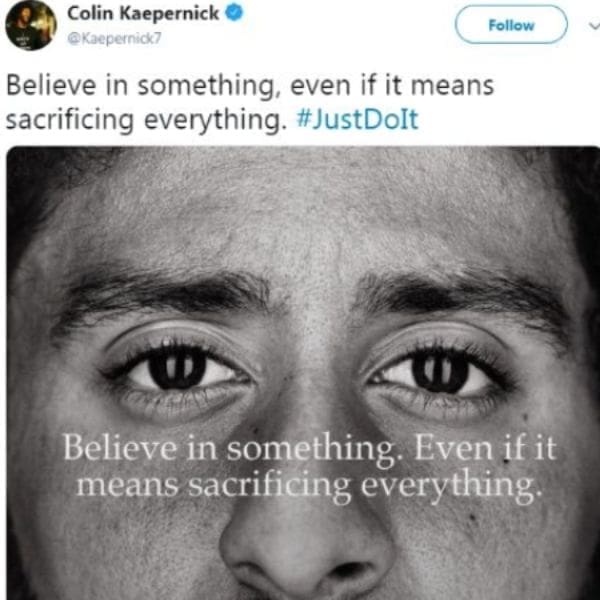In the past year, “cancel culture” has become the boogeyman of the internet, inciting dread and defensiveness among brands. If everyone is vulnerable to cancel culture, how can brands best navigate this phenomenon and prevent being canceled?
Brands’ initial responses to cancel culture have been reactionary, a hasty response marked by defensiveness in hopes of quickly course-correcting. Mintel data shows, however, that instead of preparing to respond to the aftermath of a consumer callout, brands should invest in strategies that allow for proactive accountability. By having a strong understanding of their consumer bases and a definitive brand reputation rooted in values, brands will be better equipped to proactively address controversial situations in a way that aligns with consumer expectations and their brand’s position.
Understanding consumer identity
Having a deep, insights-based understanding of their consumer bases can help brands understand the values and expectations of their audiences.
For many, shopping with values is here to stay
A driving force behind cancel culture is a growing belief that “you are what you buy.” Many consumers have come to see their own buying decisions as representative of their personal ethics and identity. Due to this belief, some consumers seek to hold brands accountable to their values and commitments through cancel culture.
While some consumers are not able or interested in buying according to brands’ values, more than half of the population wants to know they are financially supporting brands with values that align with their own. Mintel data shows that the desire to shop with values is more likely to gain traction rather than dissipate any time soon, making this an urgent consideration. Understanding the values and expectations of their core audience is a brand’s first step in avoiding cancel culture.
Brand reputation
By maintaining consistent brand values as part of managing brand reputation, brands can better navigate controversial issues and events in a way that is authentic and appropriate for the brand persona, particularly as brand leadership is increasingly the face of brand values.
High expectations of businesses to address and solve today’s challenges have never been more apparent
Across every type of institution, consumers’ trust has fallen to historic lows, and that trust deficit has real-world consequences. Due to the lack of trust in government entities, consumers are now looking to brands to step in and help solve the world’s problems. The perceived role brands play in society is growing, and brands can stand out from the pack by meeting these elevated expectations.
Navigating cancel culture
Brands can take a proactive approach towards accountability culture by deeply understanding their consumers and leveraging their own brand values and ethical positions.
Leaning into consumer identity and brand reputation is the best way forward
Committing to a brand position, whether speaking up or staying silent, comes with the risk of alienating some people.
Not all consumers shop by values. There remains a segment of the population who shop only by the utilitarian basics of convenience, price and accessibility. But, when those basics become table stakes, brand values and mission-driven initiatives could help set a brand apart.
Furthermore, Mintel data shows that when consumers do engage with brands, it’s more likely to be from a place of positivity rather than negativity. According to Mintel US research on mission-driven retail, less than one in five consumers say they actively boycott a brand whose values differ from their own, compared to over half who actively support brands with similar values and ethics.
By using consumer identity and an established brand reputation to guide strategy, brands can minimize the risk of backlash while ensuring the support of their primary base.
Accountability in practice
Both Nike and Citibank provide examples of how insights-driven consumer understanding and genuine commitment to values-based initiatives keep a brand accountable, but clear of cancel culture.
Nike stood with Colin Kaepernick

On September 3, 2018, Colin Kaepernick tweeted “Believe in something, even if it means sacrificing everything #JustDoIt.” With those words, he announced that he would be one of the spokespeople for Nike’s latest ad campaign. A few days later, Nike released “Dream Crazy” narrated by Colin Kaepernick, its second film in the “Just Do It” anniversary series.
Despite taking on a controversial figure and issue, Nike knew it was staying true to its key consumer and established brand values. The campaign paid off in more ways than one; 40% of brand exposure was positive, and ultimately led to an increase in sales. While it alienated some consumers in the short term, in the long term, Nike has benefited from a longstanding history of socially provocative advertising that keeps its brand culturally relevant.
Citi stood with Justin Thomas
By risking further time and investment on Thomas, a now less-than-desirable partnership, Citi illustrated its commitment to the LGTBQ+ community and its mission to create lasting change.
One of Team Citi’s golfers, Justin Thomas, used an anti-gay slur when he missed a putt during a tournament. While he made a televised apology shortly after while still on the green, many major sponsors dropped the athlete. Rather than terminating its relationship with Thomas, Citi, a strong advocate for the LGBTQ+ community, decided to use the moment to work with Thomas to create change.
Citi announced that it will work with him to go beyond an apology and actively use his platform to accelerate support for anti-discrimination and the LGBTQ+ community. The company has also demanded that Thomas donate a “meaningful portion” of his 2021 sponsorship fee to “mutually agreed upon LGBTQ+ organizations.”
It’s important to note that this decision was not made lightly as Citibank and that the brand did not stand idly by. Rather, the company risked alienating a portion of its base in order to hold Thomas reasonably accountable and maintain its commitment for positive social change, a much larger strategy than mitigating a short-term loss.
What we think
The motivations behind cancel culture are not likely to diminish any time soon. In the last few years, consumers’ ethical standards for brands and the desire to hold brands accountable have only heightened. One of the biggest learnings from the year 2020 is that there will always be a ‘next normal’ to challenge how people think about corporate social responsibility and brand ethics. As culture continues to evolve and change, so must brands. Brands that proactively adapt their business practices around the concept of accountability, instead of waging war on cancel culture, will be poised for the future.
For more about Mintel’s insights on Cancel Culture, clients can contact their Mintel account manager.







































